Name That Tune
Tuning a VMP-boosted Coyote with HP Tuners’ powerful VCM Suite software
By Steve Turner
When it comes to performance, we live in glorious and wonderful times. Today’s Fords deliver great thrust right off the dealer lot, and they readily respond to modifications. However, whether those mods are minor or major, they won’t do much good unless you teach the car’s onboard computer to work with the new hardware.

Over the years, we have worked with numerous tuning solutions from piggyback computers and full standalone systems to plug-in chips and modern flash tuners. These days, it’s mostly about handheld flash tuners on the street all the way up to the most extreme race cars. However, there is a recent player on the Ford scene, and this outfit delivers its files right from a laptop.
That company is HP Tuners. While this outfit made its name in the Brand X world, the HP Tuners is making a major push into the Ford world.
“When the three founders of HP Tuners initially met, it was on an online forum and they just wanted to accomplish one thing: tune their own cars. However, the solutions for custom tuning were lacking in the early 2000s and Ken Cannata, Keith Prociuk, and Chris Piastri set out to develop the tools necessary to accomplish their goal. Through the process, they realized that they had developed more than just a solution to their issue, but they developed something that many shops and racers needed!†Jay Payson explained.

“Initially HP Tuners offered tuning software for vehicle platforms other companies had simply passed over, such as V-6 cars. But, they didn’t stop there. Through innovation and functionality HP Tuners has successfully established the VCM Suite as the leader in the GM custom tuning market because the product is easy enough for the racer and comprehensive enough for the professional shop,†he added. “HP Tuners is extremely excited to be bringing this product to the Ford and Dodge racers and shops in 2014!â€
We recently had the opportunity to meet up with the company’s Ford engineer, Eric Brooks, to see how the software works on his own 2014 Mustang GT project car. Eric describes himself as a professional hacker. Essentially, he spends his days uncovering the buttons and switches inside the factory computer so he can unlock the door and allow the magic of modifications to take place.

“I am the only Ford guy in the engineering department at HPT,†he said. “I reverse-engineer Ford PCMs and create definitions so that our software can support all the various Ford vehicles.â€
Currently, the HP Tuning software supports all V-6- and V-8-powered Mustangs from 2005 through the current models. It also will calibrate a wide range of other Fords, including Crown Victoria, Edge, Escape, Expedition, Explorer, Fusion, F-Series, Fusion, Ranger, Sport Trac, Taurus, and even the Thunderbird. Of course, they are working on adding applications all the time, and the 2015 Mustang is a clear target for any tuning company worth its code.

“With our VCM Suite, no handheld is necessary. You can tune multiple vehicles with one piece of hardware,†Jay said. “The software is designed to be familiar to those that know how to surf the Internet and use Windows Excel and Word making it easy to pick up and use free, daily updates for new database additions and revisions!â€
What differentiates the HP Tuners setup from most of the others on the market is the company’s use of an OBD-II dongle connected directly to a computer to transmit files from its software into the car’s PCM. Moreover, rather than selling a unique device for each vehicle it tunes, the company instead sells credits, which allows the user to keep adding vehicles and tune them all with the same MPIV OBD-II interface. You can even tune vehicles from different manufacturers with the same device and software.

Moreover, in our brief visit with Eric and HP Tuners marketing rep Jay Payson, we heard how committed the company is to continually improving its offerings. That’s part of what Eric enjoys about his work behind the keyboard.
“As a tuner, I like HP Tuners ease of use. The software is intuitive and laid out in a way that makes sense. No matter what you are tuning (Ford, GM, or Dodge), the parameters each PCM has is laid out in a way that always feels familiar,†Eric explained. “The parameters are clearly defined, and have a helpful description. This eliminates the question of what a parameter actually does.â€
To dig deeper into the VCM Suite’s capabilities, check out our overview video:
Now, for most of us, learning the vast capabilities of this software is beyond what we need. We just want to know that it will do the job for us. After witnessing it in action on Eric’s 2014 GT at VMP Tuning, we can definitely say the HP Tuners offering is fully capable and it seems the company plans to keep growing its capabilities.
“Our mission is to provide the most complete, cost effective tuning and data-acquisition solutions for enthusiasts and professional shops,†Jay enthused. And, part of that mission includes tackling the 2015 Mustang and eventually offering a tuning device for those who are so inclined.

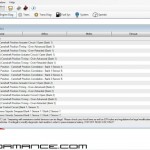
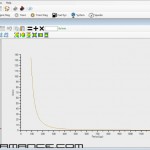
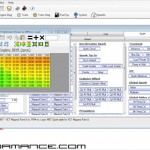
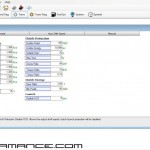
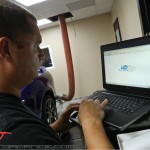
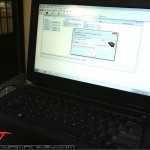
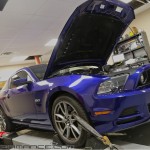
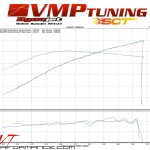
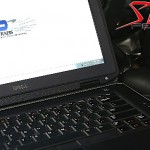
Great article Steve. It’ll be interesting to see how the tuning market reacts to the introduction of the 2015 Mustang.
Very interesting! I will have to try it out.
We have the 2015 covered 🙂
my question is how do i know what to change and when to change it ?
QUOTE
Just seeing this. Learning to tune is a ongoing thing. There is documentation in the software, and we have a helpful active forum where you can ask questions.